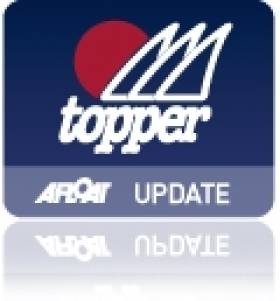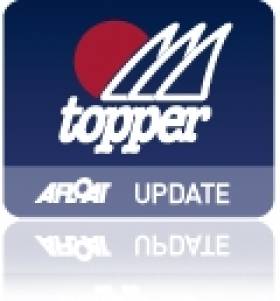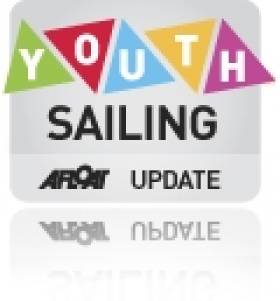Displaying items by tag: Blessington SC
Lynch Finishes Fourth at Topper Worlds
Lynch Vying for World Title in Italy
Recently crowned British National champion Finn Lynch from Co. Carlow is looking to add the World title to his list of achievements this summer. At the British nationals he beat a staggering 323 boats to take the title. Currently at the 124boat fleet in the Worlds he is lying joint 2nd after 6 races. More HERE.
Blessington's Finn Lynch Wins British Topper Nationals
From a 15 race series the St. Mary's Carlow school boy took six first places in a fleet of over 300 boats.
The rising star of Irish junior sailing, who is already a world silver medallist in the class, beat Brtiains' Edward Jones by a margin of nine points.
In July, Lynch took control of the Irish Championships in July to count nothing but podium finishes on his way to the national title against a fleet of 66 in Carlingford.
Earlier this year Lynch also cleared up at the ISA Youth Nationals winning seven out of eleven races in Schull.
Topper Results here.































































